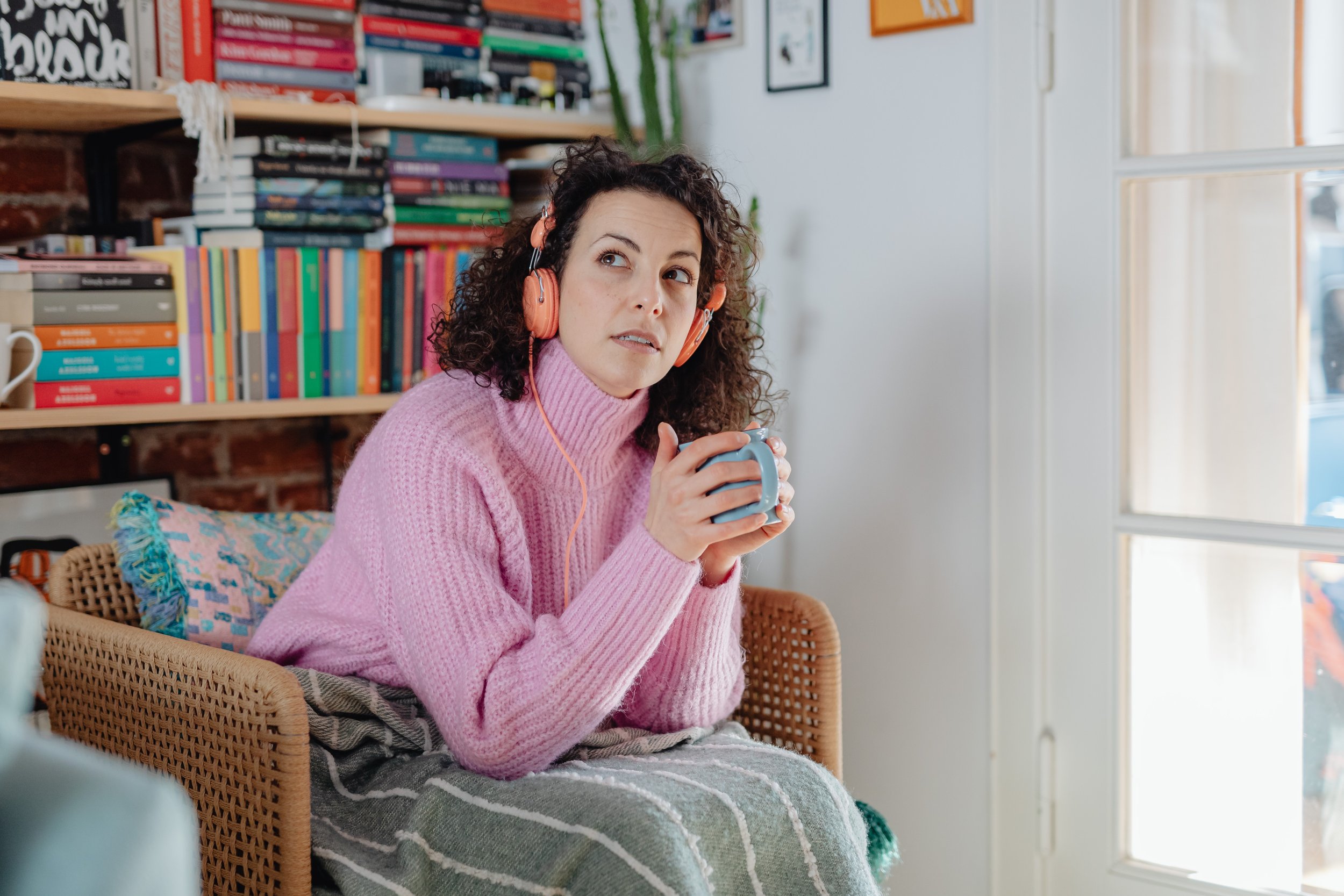The social anxiety blog
Learn more about social anxiety, the science behind Alena, and hear about the latest developments in therapy in our blog.


What is personalized healthcare, and why is it important?
Personalized healthcare is about finding the solution, or intervention that’s unique and appropriate to you and your needs, designed with a focus on you only.
So, what does it ACTUALLY mean, and why should you care if your treatment is personalized?

International Women’s Day 2023: Closing The Gender Divide
On International Women’s Day, our CEO and Co-Founder, Dr. Mandana Ahmadi, will speak on a specialist panel for Chesamel Group’s webinar “Exploring the Role of Technology in the Workforce”.

How I overcame social anxiety without a therapist
On my journey to overcome social anxiety, I unknowingly devised an action plan based on Cognitive Behavioral Therapy. Here's my story.

Uncover the cognitive processes that drive your social anxiety
We talk to Dr. Mona Garvert, Lead Research Scientist at Alena, about cognitive processes – what they are, how do we define them, and how Alena therapy uses them to help you improve your social anxiety

Using Alena improves your social anxiety in just four weeks
Initial research from Alena shows that users are seeing three times the improvement in social anxiety scores over the control group, after using the Alena therapy app for four weeks.

The Challenge no-one talks about: social anxiety as a new parent
When does staying at home stop being a normal routine of a new parent, and become a coping mechanism for a deeper issue of social anxiety?

Exercise: Inner critic to coach
Identify your self-critical thoughts - your inner critic; and turn them into helpful, supportive thoughts, your inner coach.

Self Compassion exercise: Write a self-compassion letter
Pinpoint the worries that you are struggling with right now, and learn how to use self-compassion as a helpful, mindful tool.

Blue January: How to tackle the darkest month of the year when you experience social anxiety
If you experience social anxiety on any level, this could make the January blues even more challenging. But there is hope and support.

Managing alcohol and social anxiety - 10 ways to change your relationship with drinking
Often, alcohol can be turned to as a method of coping. However, even if in the short-term it does help, the long-term effects can be detrimental.

How Common Is Social Anxiety?
If you experience social anxiety, you may feel alone in the world. But the fact is that you’re far from alone. Find out more about how many people experience social anxiety.

How to manage your social anxiety over the festive season
We explore why the holiday period can feel particularly difficult for anyone who experiences any level of social anxiety, and how you can help yourself manage it.

Debunk Common Myths About Social Anxiety
Take part in this myth-busting quiz to learn more about social anxiety.

Exercise: Release from unhelpful thoughts
Take your unhelpful, negative thoughts that are heightening your anxiety, and learn the three techniques for releasing them.

What is CBT, and how can it help you take control of your social anxiety?
Cognitive Behavioral therapy (otherwise known as CBT), is the most effective treatment for social anxiety. Find out more about how it works.

Personalizing mental health - a Tech Can’t Save us podcast
In this podcast, Mandana discusses Alena’s forward-thinking approach with mental health, using Tech to help people be their best selves.
"Personalisation is key. At the end of the day, what matters is what's happening to me, my body, my brain, my life; therefore, it has to be specific to me”.

What Social Anxiety Is – and What It’s Not
To start facing social anxiety, we must first understand what it is. Although shyness and social anxiety are similar in some ways, they are, in reality, two very different things.

World Mental Health Day
We share some of our favourite self-care resources, and invite you to take part in reflecting on how we can all support people in improving their mental health, while living in an unequal world.

Anxiety makes time pass quicker (but fear doesn’t)
But new neuroscience research is shedding light on how the illusion of time depends on how we are feeling and thinking.
